Nurse's Small Changes Lead to Big Impacts for Patients and Community
At UC Davis Medical Center’s Emergency Department (ED), Danise Seaters has seen a lot in her 16 years of working as a Nurse Practitioner. What impacts her most are the patients that repeatedly visit the ED and seem to get lost in the medical system. “Many of these patients have some form of health insurance, but have never seen a primary care doctor—so access to the ED is their only avenue to health care,” she explains. Often these patients are referred to as “frequent flyers” or “non-compliant.” However, Seaters understands that this patient population returns often due to a lack of resources including poor access to primary care, inability to pay for required prescriptions or necessary specialty clinics, difficulty understanding discharge instructions, and other poverty-related barriers—such as not knowing how to maneuver the health care system and not having the time it takes to establish a primary care doctor.
Wanting to do more—and at the recommendation of her sister, a public education administrator—Seaters attended the 2019 Stockton Beegle Poverty Immersion Institute. The experience not only changed how she provides medical care and interacts with patients, it has given her the inspiration to lead change in the community and foster improvements on healthcare outcomes for people struggling in poverty. “I have always wanted to give better care and felt for those in need." says Seaters. "After hearing Dr. Beegle speak, I knew I wanted to do even more.”
Small changes in her practice have led to big impacts. “Before, I treated symptoms and medical conditions. Now, I treat patients. Now, my interactions are drastically different since becoming more poverty informed,” she explains. Her new strategies incorporate building rapport, validating struggles and experiences, assessing patients for poverty-related barriers, tailoring discharge instructions, and connecting patients to resources.
For professionals who say they do not have time to ask questions or who may feel uncomfortable asking questions, Seaters offers this solution: build rapport and save the most sensitive questions until the end of your time together. One way to build rapport is to simply share information about yourself. “I told one patient who was a single mom that I had been raised by a single mom. I tried to show her that I understood how hard she was working to provide for her family. After that, it was easier for her to open up to me and share her struggles. Then we were better able to provide a good plan of action for her and her family.”
Asking personal questions is easier if you help the patient feel comfortable, explains Seaters. She does this by validating their experiences, finding common ground, or just listening. “Once I have heard what they are going through, I can say something like, ‘It sounds like you are working really hard since you have two jobs and work every day of the week.’ ‘When it is really cold outside, that is a very difficult time to have nowhere to go.’” Seaters credits her new approach to working with patients to the concepts she learned at the Beegle Poverty Institute. “Having gone through Dr. Beegle’s training definitely changed how I interact with patients. It only takes a few minutes to help people feel validated.”
"Before attending the Poverty Institute, I wouldn’t have felt comfortable asking questions or screening all of my patients.” Seaters explains. “But, the institute allowed me to have a better understanding of poverty and how it impacts people. I now have the ability to assess and connect with my patients in ways that avoid unintentional harm."
"If you are not asking the right questions, you can not fully understand someone's needs,” Seaters says. Not only does she ask a patient about their medical history, she asks all my patients if they have access to a primary care doctor and how long it takes to get an appointment with them. She asks them more personal questions such as ‘where do you get your food’ and ‘do you have transportation for follow-up care.’ She even asks questions about employment: ‘Are you currently working? How many jobs?’
Personal questions may be hard to ask, but they are critical to care. “As providers, we tell people to eat healthy, nutritious foods. But these are often costly. We need to ask our patients what foods they have easy access to, because they don’t always have choices," Seaters says. “Once we learn about the options they have, we can provide more appropriate instructions on what foods to eat and how to prepare them.”
Seaters also asks if they have money to pay for their prescriptions. "This helps me to choose cost-effective medications or alternatives that they may be able to afford. My goal is to develop obtainable options for them."
Traditionally, patients living in the crisis of poverty do not expect to get help outside of an ED doctor’s medical advice, but Seaters wants to change that. She tells the story of a young woman who came into the ER because she was scared she might be having a miscarriage. After building rapport, Seaters asked her questions about a prenatal provider to treat her during her pregnancy and where she was living. At first, the young woman was reluctant to answer the questions. But as she became more comfortable with Seaters, she disclosed that she was homeless and had been worried that her baby would be taken away from her. Seaters explained that it was her job to help her and that there was no social worker there to take her baby. Seaters connected her to the resources she needed to have a healthy baby, got her access to prenatal care, and discussed programs such as WIC.”
In addition to improving her own practice, Seaters has stepped up as a leader in her community by working to create better community partnerships. Her recent work includes coordinating partnerships between the hospital and community resources for those struggling in poverty. “We have become more aware of what resources are available in the community," she explains, “and try to connect my patients with them when appropriate.” Because of her efforts, UC Davis’ Emergency Department now has government funded “Health Navigator Representatives” to help connect patients to primary care doctors, social workers, and others in the community that can provide resources. She would also like to work with the California State Legislature to improve resources for people who are homeless.
Seaters plans to continue her leadership with the goal of creating a more Poverty-Informed community that improves healthcare outcomes for people in need. She does this by providing poverty awareness lectures and education to local organizations. She is also working to bring Dr. Beegle to Sacramento to conduct a Beegle Poverty Immersion Institute for hospital staff and community organizations. Seaters concluded, “Poverty awareness has drastically transformed me and how I deliver care to my ED patients. I recommend that all civil service personnel seek out poverty awareness to improve our outcomes. Together we can make positive change to those living in poverty.”
Seaters' Strategies in Action
All of Seaters’ new strategies are highlighted in a story about a patient who was in the ED for an upper respiratory infection. First, she did a quick search in the electronic medical records and saw that he had been into the ED a few times recently for the same issue. He could have followed up with a primary doctor, but instead he was back at the ED. This led her to believe that he may have some barriers to accessing healthcare. After talking with him for a bit, she learned that he was not working and that he had just recently been released from prison—three months earlier—after 26 years of incarceration. After sharing this information, he promptly diverted his gaze to the ground and stopped making eye contact. He speculated, “Lady, I am pretty sure you think I’m a bad person.” Seaters firmly told him, “No. You paid your debt to society. It is not my job to judge you. I am here to provide medical care. So, how can I help you today, Sir?” Seaters continued to ask questions such as how he was adjusting to life after prison. He got teary and told her that he could not find a job. He was 46 years old and a lot had changed. He asked, “Can you believe we don’t have payphones anymore?”
Seaters continued asking questions—learning that he earned a GED in prison. “I acknowledged all the hard work he must have done and told him he should be proud of obtaining his GED.” After Seaters validated his experiences, the patient went on to reveal that he did not have a home and was "couch surfing." He also revealed that he did not have a primary care doctor. At the end of the meeting, Seaters connected him to a primary doctor and other resources in the community. He was emotional and said, ‘Thank you for treating me like a human. It's been a long time since someone has.”


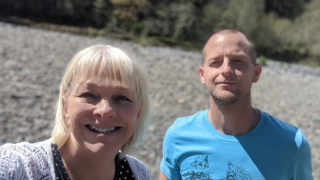
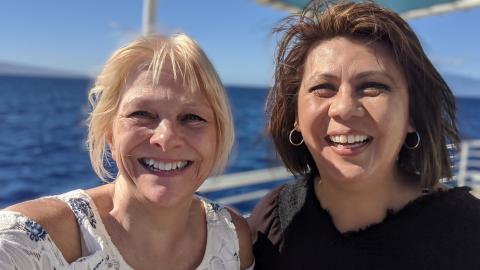
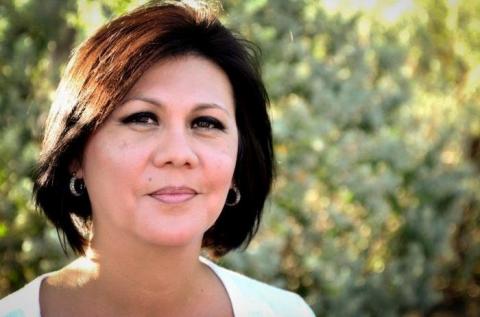

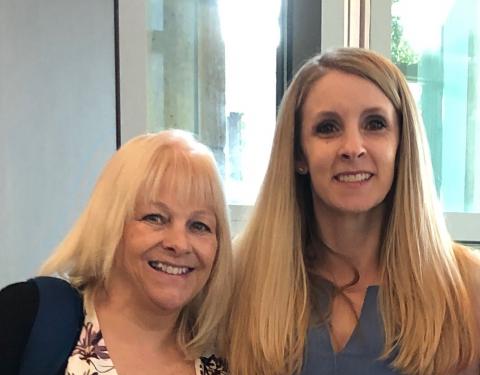

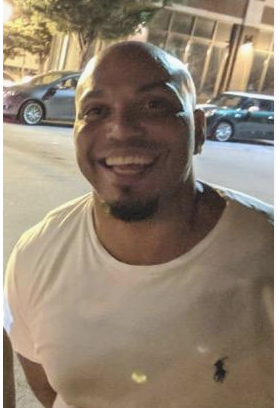
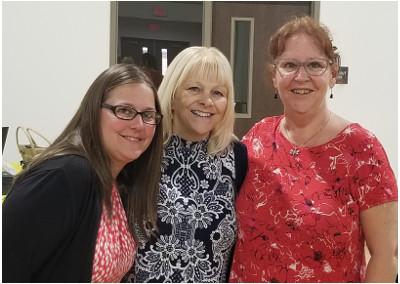
Comments
Tuning in
Thank you, Dr. Beegle, for this conversation and easy platform. It is a privilege to hear Matt's sharing. I look forward to hearing more and learning more.
For a College Class
Watching for a college class I'm in, but just wanted to say that this was a really interesting and beneficial podcast to listen to for me personally. As a girl who grew up in poverty, it was very enlightening to hear from a male perspective. Thank you for sharing!
Add new comment